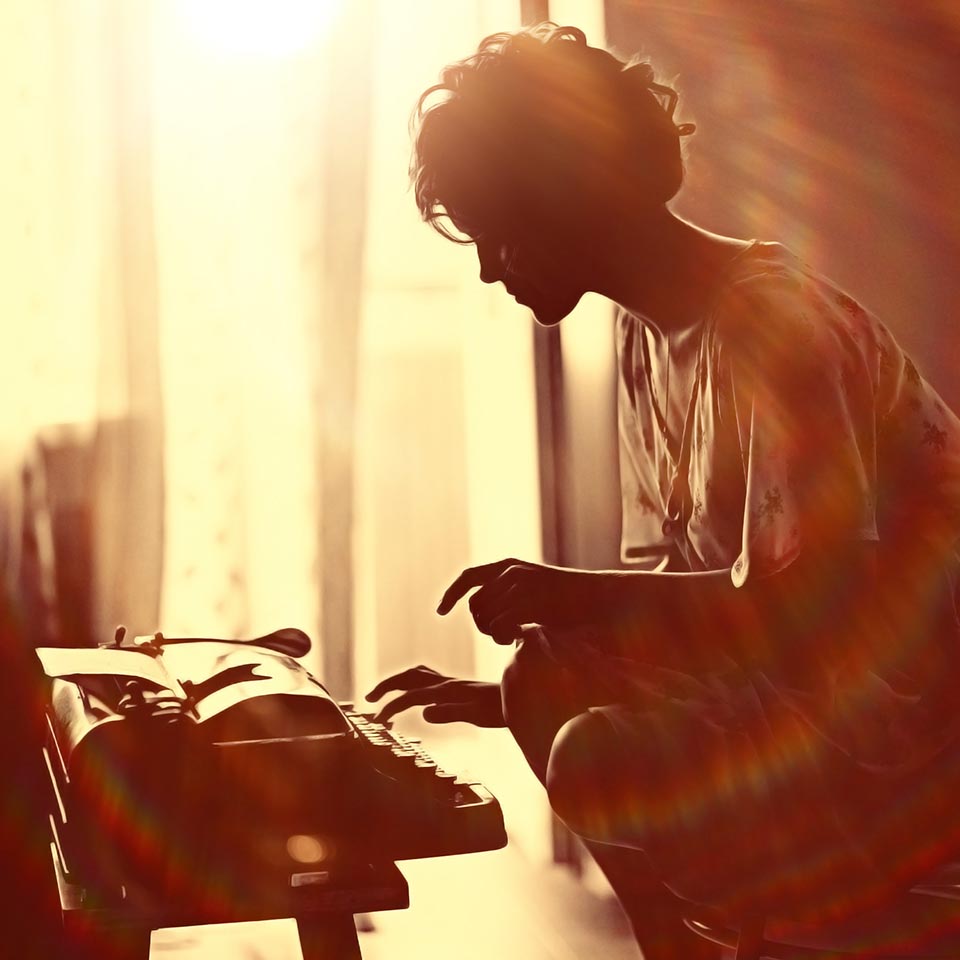Do you ever find yourself staring at a blank page and feel like your mouse cursor is taunting you? You want to write something beautiful and meaningful, but the words simply refuse to flow: we've all been there! Writer’s block may be a non-medical condition, but - even though the term was only coined in 1947 - it's a condition that has been referenced repeatedly in recorded history. Such a struggle to find inspiration can be a major obstacle to any writer, no matter how experienced they are, but there are ways to rekindle the spark of your creativity!

One such method involves the use of creative writing prompts. These tools act as gateways to unexplored corners of your imagination. They’re like seeds that you can plant in the fertile soil of your mind, just waiting to sprout into stories, poems, and essays. Seasoned wordsmiths and novice writers alike shouldn’t underestimate the power of prompts.
So, how exactly can creative writing prompts help you?
- Constraint: The idea of constraint may seem to be negative, but it can actually help to breathe new life into your writing. When your scope is narrowed by restrictions, you are presented with a whole new canvas, and getting the most out of it can present a fascinating challenge. Although the freedom of a zero-constraints approach can be liberating, it can also be overwhelming, so setting some limitations can actually increase your ideas.
- Inspiration: When writer’s block hits you, it can be very hard to settle down to your writing, and some people discover that waiting for the block to pass just doesn’t allow them to pursue their passion with enough regularity. Prompts can give you a clear goal to hit when you can’t see how to proceed with another writing project, and allow you to keep honing your craft even when your personal creative well is running dry.
- Expansion: We all have our comfort zones, but we can learn and grow a lot when we step outside them. The same is true of writing! Using prompts can encourage you to write in a style that you’ve never tried, or explore a new topic or genre. At the very least, it’s a compelling exercise for your writer’s brain to tackle, and - if you’re lucky - you may even discover a brand new way of writing that suits you.
30 Examples of Creative Writing Prompts to Inspire You
Incorporating prompts into your daily writing routine is an excellent way to broaden your skills as a creative writer and keep your words flowing, and we highly recommend that you spend some time creating a personal prompt bank that can inspire you in the long term. However, to get you started, here are some example creative writing prompts:
Write a story about a world in which everyone's memories are stored in magical objects, and one person discovers a hidden collection that reveals a shocking secret.
Imagine a future where teleportation is possible, but comes with a high cost. Write a letter as someone who has just teleported for the first time, describing their experience.
Write a short story without using any dialogue tags. Challenge yourself to convey character interactions and emotions solely through dialogue and actions.
Write a poem or short story from the perspective of an inanimate object like a tree, a chair, or a toy. Describe how it experiences the passage of time and the lives of those around it.
Create a character who wakes up one day with the ability to speak and understand all languages. Describe the challenges and opportunities that this newfound gift presents.
Create a poem that captures the essence of a vibrant city at night, using only sensory descriptions (sight, sound, touch, taste, smell) without explicitly naming objects or locations.
Write a dialogue between two characters who meet in a dreamscape. Explore the mysterious and surreal nature of their encounter and the profound impact it has on their lives.
In a dystopian society where emotions are forbidden, write a scene where a character discovers a hidden underground community that celebrates and embraces emotions.
Write a scene from a character's perspective, but use only dialogue to convey their thoughts, feelings, and observations. Avoid any direct narrative exposition or internal monologue.
Imagine a world where music has tangible effects on the environment. Write a story about a musician who discovers that their work has the power to heal or transform the natural world.
Write a personal essay or reflection on a childhood memory that shaped your understanding of friendship, love, or loss. Explore the emotions and lessons you learned.
Craft a story in which the setting itself becomes a character. Describe the location's personality, desires, and struggles using vivid imagery and personification.
Create a fictional culture with unique customs and traditions. Write a scene in which a character from another culture tries to navigate and understand this new society.
Write a thriller about a detective who’s investigating a series of disappearances in a small, isolated town. Uncover the dark secrets and unexpected twists that lie beneath the surface.
Write a story about a person who wakes up with the ability to time travel to the past. Explore how they navigate the ethical dilemmas and personal consequences of altering history.
Write a first-person narrative in which the protagonist is an unreliable narrator. Use deliberate omissions, contradictory statements, or subtle hints to convey their distorted perception.
Imagine a world where dreams become reality. Write a scene in which a character's dream manifests itself in the real world, blurring the boundaries between imagination and existence.
Write a dialogue between two animals from different species who can communicate with each other. Explore the challenges and joys of their unlikely friendship.
Create a series of interconnected flash fiction pieces, each consisting of exactly 50 words. Challenge yourself to convey a complete story or emotion within this strict word limit.
In a world where magic is real but fading away, write a tale about a group of unlikely heroes who embark on a quest to restore magic and save their realm from darkness.
Write a poem or short story that’s inspired by a painting or photograph that evokes strong emotions. Describe imagery, colours, and textures, and delve into the story behind the visuals.
Write a poem using only one-syllable words. Explore the creative possibilities of constraint by crafting powerful imagery and emotional depth within this limited linguistic framework.
Imagine a future in which technology allows humans to transfer their consciousness into robotic bodies. Write a character's internal monologue as they contemplate whether to undergo this.
Write a scene in which a character discovers a hidden, enchanted library that contains books with the power to alter reality. Explore the consequences of reading these extraordinary texts.
Craft a story with a non-linear narrative structure. Experiment with time jumps, flashbacks, and parallel storylines to create a layered and complex reading experience.
In a post-apocalyptic world, write a letter from a survivor to their pre-apocalypse self. Reflect on what has been lost, the challenges that have been faced, and the lessons they’ve learned.
Create a story set in a town where everyone has a unique, supernatural ability. Explore the dynamics and conflicts that arise within the community as they grapple with their powers.
Write a dialogue-only story where two characters communicate solely through questions. Explore their relationship, the conflicts they face, and the revelations that emerge.
Write a personal essay or memoir about a journey that transformed your perspective on life. Reflect on the people you met, the challenges you overcame, and the lessons you learned.
Create a short story with a twist ending, but foreshadow the twist subtly throughout the narrative using symbolic imagery, recurring motifs, or cryptic clues.
Remember, these prompts are meant to spark your creativity, challenge you and push the boundaries of your writing style. You may find it useful to embrace their constraints to discover new techniques, but you should also feel free to adapt or modify them to suit your own unique style and interests.
Engaging in writing challenges and with communities to gain accountability and feedback can also be invaluable. We also have a Creative Writing Diploma Course available that will help take your writing to the next level. Available for £29 (save £68!), it’s a great way to raise your skill level, and is suitable for beginners too. Additionally, we have a variety of other writing courses in our library if you’re looking for some guidance that’s tailored to a specific genre. However you choose to improve your writing, make sure that you’re enjoying this wonderful art form as often as possible.
Happy writing!





